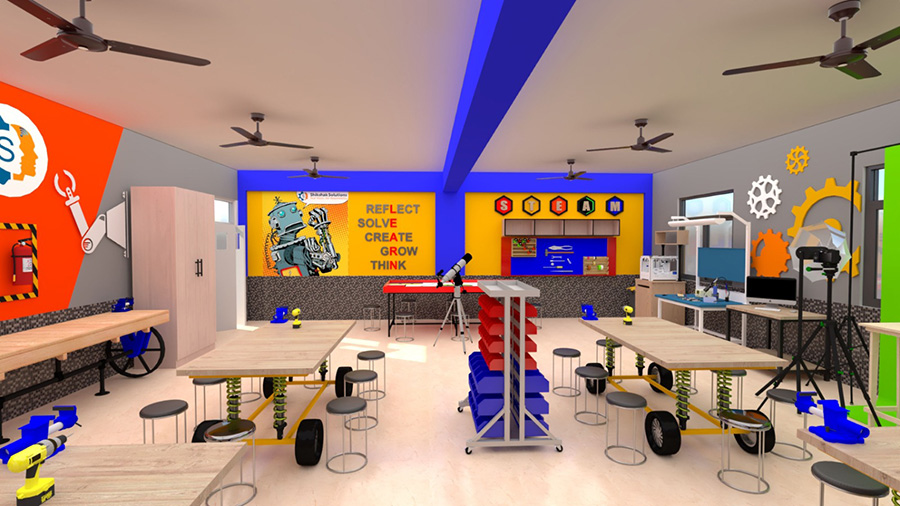Artificial Intelligence (AI) is transforming the way we work, learn, and solve problems. As industries across the globe embrace AI-driven solutions, there is an increasing need for skilled professionals who can innovate and address complex challenges. AI Lab Schools play a pivotal role in preparing the next generation of thinkers, developers, and leaders by providing a comprehensive learning environment that fosters creativity, technical skills, and problem-solving abilities.
The Mission of AI Lab Schools
An AI Lab School is designed to go beyond traditional education by emphasizing hands-on experience, real-world applications, and interdisciplinary learning. These institutions focus on equipping students with the knowledge and tools needed to understand, develop, and implement AI solutions effectively. By combining theory with practical projects, AI Lab Schools nurture both technical expertise and innovative thinking, creating an environment where students are encouraged to explore new ideas and experiment with cutting-edge technologies.
The mission of an AI Lab School is not limited to teaching coding or algorithms; it extends to fostering critical thinking, collaboration, and the ability to approach problems from multiple perspectives. Students are guided to see challenges as opportunities for innovation and are encouraged to develop solutions that are both effective and ethical.
Hands-On Learning and Practical Applications
One of the defining features of AI Lab Schools is the emphasis on hands-on learning. Students work on projects that simulate real-world AI applications, including machine learning, robotics, natural language processing, and computer vision. By engaging with practical exercises, learners develop a deep understanding of how AI can be applied to solve complex problems across industries such as healthcare, finance, education, and manufacturing.
Practical learning also includes collaborative projects where students work in teams to design, test, and refine AI solutions. This approach enhances teamwork, communication, and project management skills, preparing students to excel in professional environments. The combination of theory and practice ensures that graduates leave the AI Lab School ready to make meaningful contributions from day one.
Encouraging Creativity and Innovation
AI Lab Schools emphasize creativity as a core component of problem-solving. Students are encouraged to think outside the box, experiment with unconventional approaches, and develop innovative solutions to real-world challenges. This focus on creativity ensures that learners not only understand existing AI technologies but also contribute to advancing the field through new ideas and applications.
Innovation is fostered through hackathons, competitions, and collaborative workshops, where students are challenged to apply their knowledge in inventive ways. These activities help develop critical thinking, adaptability, and resilience—skills that are essential for thriving in a rapidly evolving technological landscape.
Interdisciplinary Learning and Collaboration
AI Lab Schools promote interdisciplinary learning, integrating knowledge from computer science, mathematics, engineering, and cognitive sciences. This holistic approach allows students to see AI not just as a technical tool but as a framework for solving problems across domains. Collaboration with peers from diverse backgrounds encourages the exchange of ideas, leading to more comprehensive and creative solutions.
By working in interdisciplinary teams, students learn to leverage different skill sets and perspectives, fostering innovation and preparing them for the collaborative nature of professional AI projects. This experience also helps students build soft skills such as communication, leadership, and negotiation, which are critical for success in any career.
Mentorship and Industry Exposure
AI Lab Schools provide access to experienced mentors who guide students throughout their learning journey. Mentorship programs help learners navigate complex concepts, refine their projects, and gain insights into the latest trends and applications in AI.
Industry exposure is another key component, with partnerships and collaborations offering students opportunities to work on real-world projects, internships, and research initiatives. This connection to industry ensures that students understand practical applications of AI and are prepared to enter the workforce with confidence and competence.
Ethical AI and Responsible Innovation
A crucial focus of AI Lab Schools is instilling a sense of responsibility in future AI professionals. Students are taught the ethical implications of AI, including fairness, transparency, accountability, and privacy. By integrating ethics into the curriculum, AI Lab Schools ensure that innovation is guided by principles that benefit society and minimize potential risks.
Preparing Future Leaders in Technology
The ultimate goal of an AI Lab School is to nurture future leaders who can drive technological innovation and solve pressing global challenges. By combining technical expertise, creativity, interdisciplinary learning, and ethical awareness, these institutions prepare students to take on leadership roles in AI research, development, and implementation.
Conclusion
AI Lab Schools represent a new model of education that equips students with the skills, knowledge, and mindset necessary to excel in an AI-driven world. Through hands-on learning, creative problem-solving, mentorship, and industry exposure, these institutions prepare the next generation of innovators and tech leaders. By fostering both technical proficiency and ethical responsibility, AI Lab Schools are shaping a future where AI is leveraged to solve complex problems, create opportunities, and drive positive change in society.



